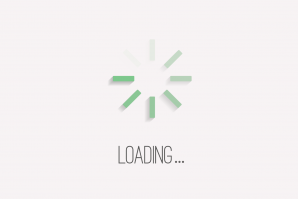Network neutrality is the idea that all data should be treated equally no matter who is sending it. Essentially this means that the “Davids” of the Internet who have their own personal blogs with relatively small followings have access to the same resources as the “Goliaths” who have massive audiences. According to the Internet Association, which represents some of the biggest internet companies in the world, an overwhelming 90 percent of users support neutrality.
First, the basics. There are four entities involved in this debate: the U.S. government, wireless carriers and other internet service providers (like Comcast and AT&T), content providers (like Netflix and Google) and providers of the physical wire that connects a home or business to the Internet. The U.S. government is trying to decide if it’s OK for ISPs to create more lanes, then charge content providers a higher fee for traveling down the fast ones.
Here’s why the service providers say this is a good idea:
Popular sites are already favored. Video streaming eats up a lot of bandwidth, and an ISP’s ability to ensure access to streaming video is vital to customer satisfaction.
“So if you have one customer who is eating up bandwidth and hurting the experience of the rest of your customer base, you have to address that,” says Mike Shultz, vice president of Regulatory and Legislative Affairs for service provider Consolidated Communications.
Say video site A has more users hogging bandwidth by streaming a vast amount of data. This activity can slow down the experience for users of video site B. Site A may need to be charged more to ensure users of site B are unaffected.
It’s only fair to share the cost. ISPs want to share massive infrastructure costs with content providers. Additional revenue from tiered services could help pay for internet service infrastructure construction and improvements. ISPs that invest in infrastructure want this cost to be shared by content providers who are currently using the network for free.
Net neutrality legislation makes it harder to target the “bad guys.” Legislation for net neutrality has the potential to make sites vulnerable to attack. A distributed denial of service attack, for example, is when users intentionally flood a site with the intent of overwhelming its server and taking the site offline. If it’s illegal to discriminate and ISPs can’t target sources to throttle particular traffic, it becomes increasingly difficult to stop a DDoS attack. Network security firm NSFOCUS estimates an average of 28 DDoS attacks per hour in 2013.
There’s no need to legislate neutrality. Leave it up to the industry and keep the government out of it. Shultz says he supports a free and open internet, but that doesn’t mean he supports the legislation surrounding it.
“The instances of true net neutrality violations, at least from our perspective, have been few and far between, and so there’s really no need for regulation because we self-regulate,” he says. “The industry is doing what it needs to do to make sure customers are experiencing the Internet the way they should be.”
Do these arguments against net neutrality hold any water? Let us know what you think in the comments:
Recommended For You

Protecting Ourselves From a Slower Internet
Without net neutrality, small businesses and consumers lose
You may have heard about the “internet slowdown” that happened in September. While the term “slowdown” isn’t accurate because the internet was running at full speed, prominent sites like Netflix, Vimeo and Etsy displayed a symbolic loading symbol to protest recent actions by the Federal Communications Commission to eliminate network neutrality.

Social Network
How crowdfunding connects strangers — and your business – to money
“Small Market, Big Heart” tells the story of the Sacramento Kings and their fans’ fight to hold onto the team. But the 80-minute documentary — packed with NBA archive footage and interviews with Kings’ executives, local politicians and sports entertainment personalities — isn’t from the NBA offices or an established production company.

Start Me Up
Local residents make product dreams a reality
Salon owner Carol Milani had never invented anything before, but she needed a way to keep her strong and fearless Bengal cat from escaping the yard.

The Tableted Worker
Is it really possible to leave your laptop behind?
Tablet computers are becoming the tool of choice in multiple industries, adding convenience to simple tasks such as note taking, to more complex operations such as tracking sales. Tablets haven’t replaced laptops yet, but sales trends favor the handheld devices.




Comments
Wow - this article is super lame and inaccurate. Let's debunk the four points:
1) You're trying to say that equal treatment is favoritism. What BS.
2) Content providers are already pay to put content online - that's what web hosting is. And consumers are paying for access to this content. What you want is RANSOM. And it's BS.
3) Really? You expect people to believe that this is about preventing online attacks?
4) Self-regulation is a transparent oxymoron - and frankly it's already be breached. See the attack on Netflix.
Here's the much more hilarious Oatmeal takedown on these kind of talking points:
http://theoatmeal.com/blog/net...
The entire premise of this article is false. "The U.S. government is trying to decide if it’s OK for ISPs to create more lanes, then charge content providers a higher fee for traveling down the fast ones". The government is not trying to decide if it's ok of ISPs to create more lanes. The cheap ISPs are trying to avoid building new lanes by pushing everyone into the slow lane while they extort netflix for cash. Greed, greed, greed.